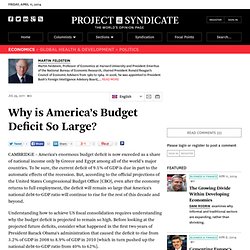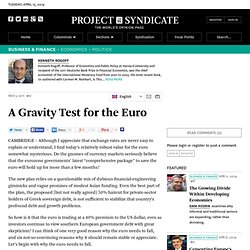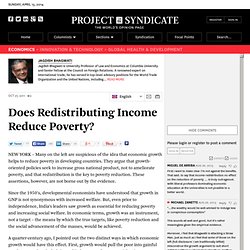

Europe’s High-Risk Gamble - Martin Feldstein. Exit from comment view mode.

Click to hide this space CAMBRIDGE – The Greek government needs to escape from an otherwise impossible situation. It has an unmanageable level of government debt (150% of GDP, rising this year by ten percentage points), a collapsing economy (with GDP down by more than 7% this year, pushing the unemployment rate up to 16%), a chronic balance-of-payments deficit (now at 8% of GDP), and insolvent banks that are rapidly losing deposits. The only way out is for Greece to default on its sovereign debt. When it does, it must write down the principal value of that debt by at least 50%. If Greece leaves the euro after it defaults, it can devalue its new currency, thereby stimulating demand and shifting eventually to a trade surplus. The markets are fully aware that Greece, being insolvent, will eventually default. Why, then, are political leaders in France and Germany trying so hard to prevent – or, more accurately, to postpone – the inevitable?
Why is America’s Budget Deficit So Large? - Martin Feldstein. Exit from comment view mode.

Click to hide this space CAMBRIDGE – America’s enormous budget deficit is now exceeded as a share of national income only by Greece and Egypt among all of the world’s major countries. To be sure, the current deficit of 9.1% of GDP is due in part to the automatic effects of the recession. But, according to the official projections of the United States Congressional Budget Office (CBO), even after the economy returns to full employment, the deficit will remain so large that America’s national debt-to-GDP ratio will continue to rise for the rest of this decade and beyond. Understanding how to achieve US fiscal consolidation requires understanding why the budget deficit is projected to remain so high. The 5.7%-of-GDP rise in the budget deficit reflected a 2.6%-of-GDP fall in tax revenues (from 17.5% to 14.9% of GDP) and 3.1%-of-GDP rise in outlays (from 20.7% to 23.8% of GDP). A Gravity Test for the Euro - Kenneth Rogoff. Exit from comment view mode.

Click to hide this space CAMBRIDGE – Although I appreciate that exchange rates are never easy to explain or understand, I find today’s relatively robust value for the euro somewhat mysterious. Do the gnomes of currency markets seriously believe that the eurozone governments’ latest “comprehensive package” to save the euro will hold up for more than a few months?
The new plan relies on a questionable mix of dubious financial-engineering gimmicks and vague promises of modest Asian funding. Even the best part of the plan, the proposed (but not really agreed) 50% haircut for private-sector holders of Greek sovereign debt, is not sufficient to stabilize that country’s profound debt and growth problems. So how is it that the euro is trading at a 40% premium to the US dollar, even as investors continue to view southern European government debt with great skepticism? Given this, what arguments support the current value of the euro, or its further rise? Does Redistributing Income Reduce Poverty? - Jagdish Bhagwati. Exit from comment view mode.

Click to hide this space NEW YORK – Many on the left are suspicious of the idea that economic growth helps to reduce poverty in developing countries. They argue that growth-oriented policies seek to increase gross national product, not to ameliorate poverty, and that redistribution is the key to poverty reduction. These assertions, however, are not borne out by the evidence. Since the 1950’s, developmental economists have understood that growth in GNP is not synonymous with increased welfare.
A quarter-century ago, I pointed out the two distinct ways in which economic growth would have this effect. Second, growth increases state revenues, which means that the government can potentially spend more on health and education for the poor. Yet, as Columbia University economist Arvind Panagariya’s recent work shows, Kerala’s social statistics were better than those in the rest of the country even before it instituted its current redistributive model. Project Syndicate - the highest quality op-ed ( opinion-editorial ) articles and commentaries.